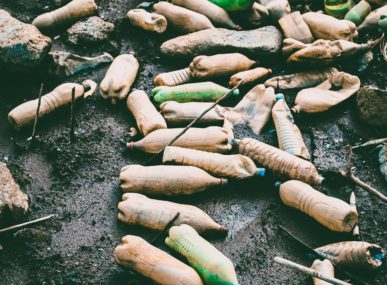Hoteit gravitated towards her vocation during her engineering studies, as her background in sustainable product design morphed into tackling the environmental damage wrought by “fast fashion” trends. From 2016, she developed a business model aimed at minimizing the carbon impact of transporting supplies, reducing waste from the label’s manufacturing, and paying her staff fair wages.
The result is CIVVIES, which generated no shortage of buzz in Beirut’s fashion circles with its October 2018 launch. Already, CIVVIES’ innovative designs have entered the wardrobes of social media influencers and other Beiruti trendsetters.
According to Hoteit, customers have responded enthusiastically to the uniqueness of CIVVIES garments, because each hand-printed design is a one-off. “We could not make the same design again,” she said, “even if we tried.”





